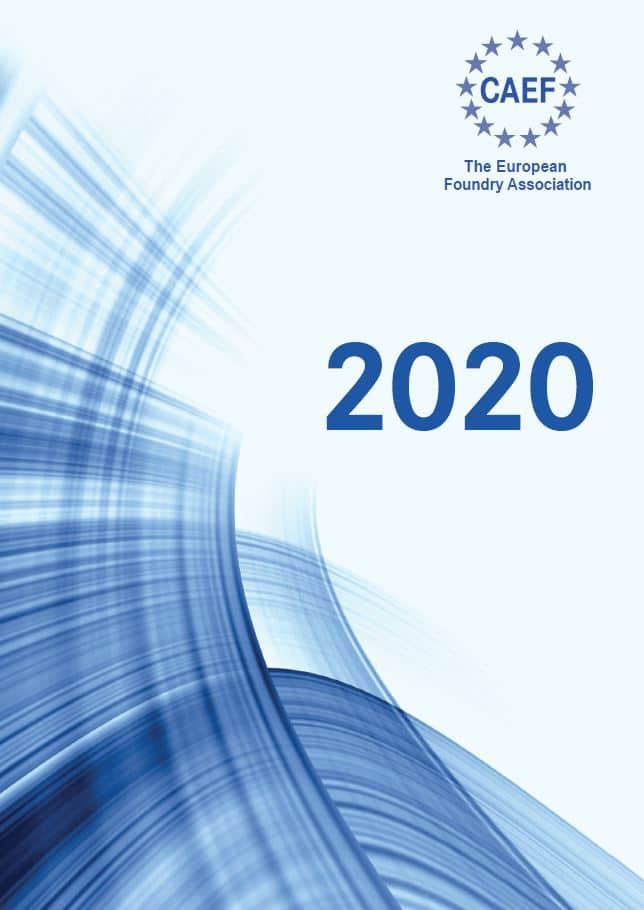Data of unique scope and depth show the impact of the Covid-19 pandemic on European foundries. While the European production of non-ferrous metals decreased by 19.2 % overall, the production of iron, nodular iron and steel castings decreased by 19.8 % compared to 2019.

The Covid-19 pandemic shaped social and economic life worldwide in 2020. In the wake of the rising infection figures European governments reacted with drastic measures to reduce the public health risk and absorb the resulting economic damage. In spring, therefore, the production facilities of many foundries as well as their suppliers and customers were completely shut down — often for several weeks — in numerous European countries. After production has restarted around summer with great efforts and adapted hygiene concepts, there was a renewed increase in Covid-19 case numbers towards the end of the year, which put a burden on economic recovery. Government support measures and the high adaptability and performance of the industrial sector prevented more detrimental distortions.
In addition to the challenges directly related to the infection situation in the companies, the European foundry industry suffered from problems on both sides, supply and demand. While particlularly the cyclically sensitive and casting-intensive automotive industry in Europe, was in deep crisis, problems in logistics were already becoming apparent. The planning reliability for foundries was thus considerably impaired.
The current developments in the European foundry industry and the market for castings can only be seen against the background of the year 2020. On the one hand, it is necessary to understand statistical base effects, and on the other hand, the challenges associated with the economic recovery go back to the developments of the previous year. Meanwhile, the industrial transformation towards climate neutrality has tended to intensify during the pandemic. The challenges and opportunities for foundries have thus become even more diverse in their own production processes and in the strategic consideration of customer segments.
Finally, for the European foundry industry, the EFF publication The European Foundry Industry 2020 provides a comprehensive overview of the relevant data in unique depth and breadth. In addition to these data, the publication includes reports on the economic developments in the EFF member countries and the foundry associations’ assessments of the most important market developments for castings.
Download the EFF yearbook 2020 here.
EFF Contact:
Tillman van de Sand
phone: +49 211 68 71 — 301
tillman.vandesand@EFF.eu